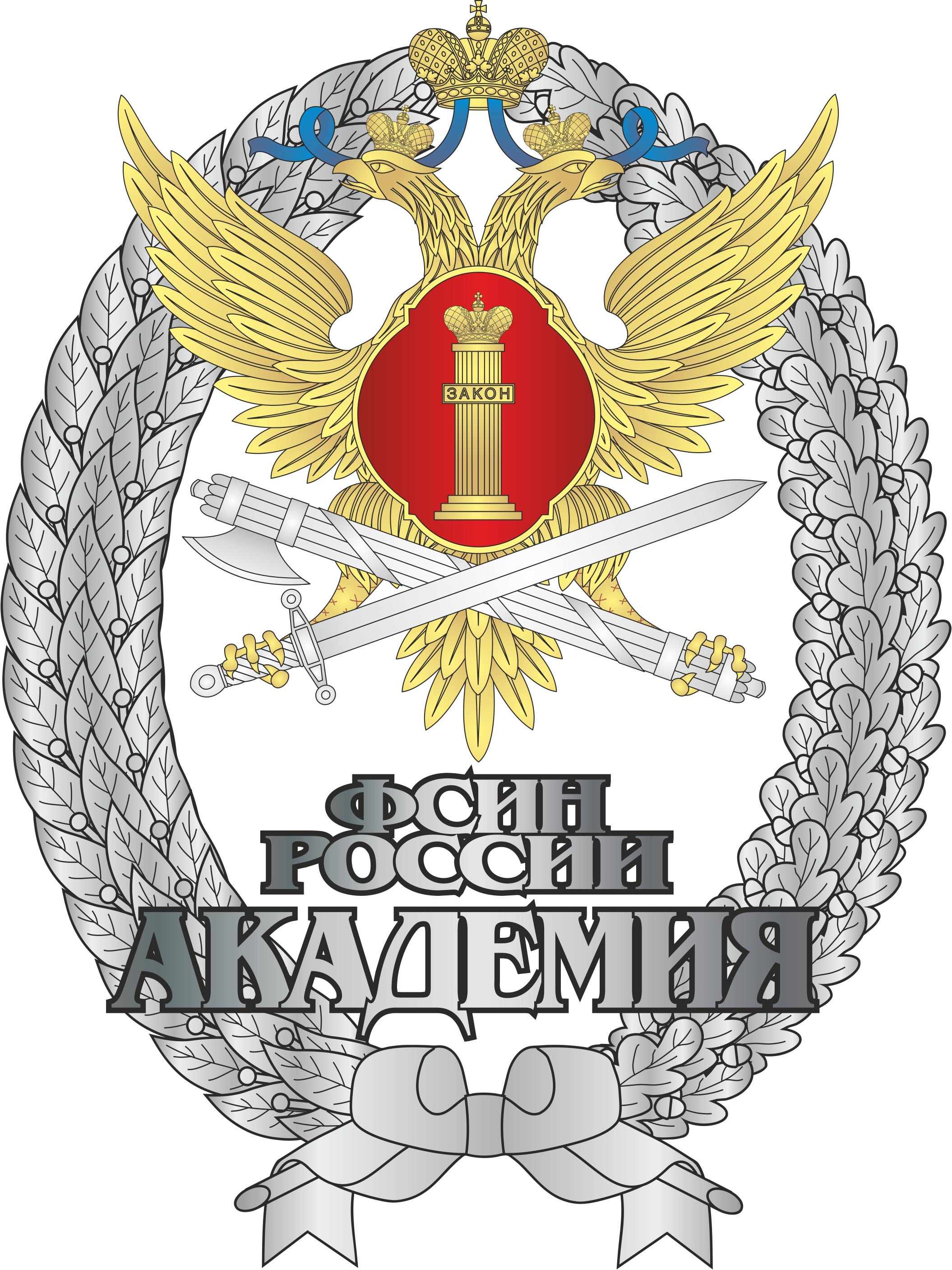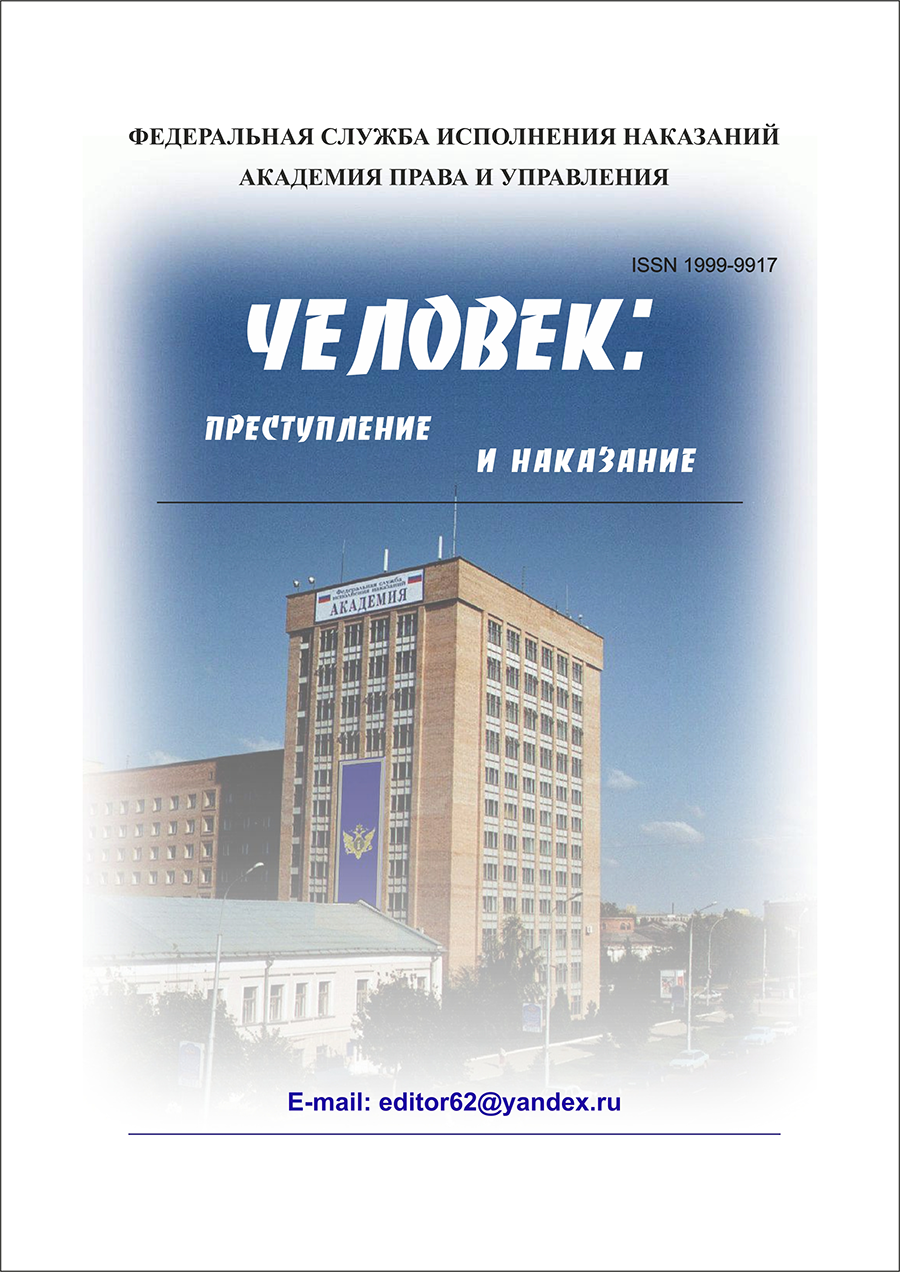UDC 343.8
The article attempts to analyze the causes and nature of negative phenomena in the activities of the Russian penal system based on the methodology of neo-institutional economic theory. In particular, the manifestations in the penitentiary community of such general civilizational phenomena, from the point of view of neo-institutionalism, as public goods, formal and informal rules, external positive and negative effects are characterized. It seems that the proposed approach can contribute to a deeper understanding of the origins and content of many negative processes in the penal enforcement system, as well as problems of its functioning and their solution.
penal system, law and order, formal and informal rules, external effects, prison subculture, penitentiary society
1. Levinson, A. 2016, ‘Informal structures in places of forced detention’, Bulletin of Public Opinion, iss. 3-4(122), pp. 130–140.
2. Bilous, E. N., Kutyakin, S. A. & Naphanenko, I. P. 2016, ‘The antagonistic nature of the factors causing the emergence of informal prison norms ("concepts") among those sentenced to imprisonment’, Philosophy of Law, iss. 1(74), pp. 82–87.
3. Narimanov, N. F. 2011, ‘The content and features of the public good provided by the penal enforcement system’, Man: crime and punishment, iss. 2(73), pp. 143–147.
4. Narimanov, N. F. 2011, ‘External effects in the execution of criminal penalties’, in Organizational and legal, psychological, pedagogical and socio-economic support of the Concept of development of the penal enforcement system of the Russian Federation until 2020: current state and prospects: collection of materials of the International Scientific and Practical Conference (Ryazan, October 27–28, 2011), in 2 vols, vol. 2, part 2, pp. 178–180, Academy of the FPS of Russia, Ryazan.
5. Oleinik, A. N. 2021, Prison subculture in Russia: from everyday life to state power, INFRA-M, Moscow.
6. Volkov, A. A., Volkov, M. A. & Uvarov, I. A. 2019, ‘Features of the functioning of informal norms of behavior in conditions of places of deprivation of liberty’, Humanitarian and legal studies, iss. 2, pp. 114–120.
7. Ignatiev, A. M. 2018, ‘Congruence of formal and informal norms in places of deprivation of liberty as a condition for stable functioning of correctional institutions’, Synergy of Sciences, iss. 24, pp. 1037–1042.
8. Uvarov, I. A. 2012, ‘Ideology of the penitentiary community in the system of formation of public consciousness of convicts’, Bulletin of the Institute: crime, punishment, correction, iss. 18, pp. 40–43.
9. Bogdanov, L. 2003, ‘Finances of the penal enforcement system’, Otechestvennye zapiski, iss. 2, viewed 10 August 2024, https://magazines.gorky.media/oz/2003/2/finansy-ugolovno- ispolnitelnoj-sistemy.html.
10. Kuznetsov, Yu. 2003, ‘Law and order as an economic benefit’, Otechestvennye zapiski, iss. 2, viewed 10 August 2024, https://magazines.gorky.media/oz/2003/2/pravoporyadok-kak- ekonomicheskoe-blago.html.
11. Narimanov, N. F. 2019, ‘Methodological foundations of the study of the socio-economic efficiency of the penal enforcement system’, in IV International Penitentiary Forum "Crime,punishment, correction": collection of abstracts of speeches and reports of participants, to the 140th anniversary of the penal system of Russia and the 85th anniversary of the Academy of the FPS of Russia, in 10 vols, vol. 9, pp. 158–163, Academy of the FPS of Russia, Ryazan.
12. Kotlyarov, I. D. 2015, ‘A new look at the functions of the penal enforcement system: service approach’, Jurist-Pravoved, iss. 2(69), pp. 26–30.
13. North, D. 1997, Institutions, institutional changes and the functioning of the economy, Nachala, Moscow.
14. Nosova, S. S. 2015, Institutional economics: textbook, Knorus, Moscow.
15. Kutyakin, S. A. 2009, ‘The concept, content and structure of criminal opposition in places of detention in Russia’, All-Russian Journal of Criminology, iss.1, pp. 11–15.
16. Alexandrov, Yu. K. 2012, Essays on criminal subculture, Human rights, Moscow.
17. Anisimkov, V. M. 2003, Russia in the mirror of the prison's criminal traditions, Law Center Press, St. Petersburg.
18. Barabanov, N. P. 2014, ‘Criminological and psychological characteristics of the criminal subculture of convicts’, Penal law, iss. 2, pp. 28–36.
19. Kutyakin, S. A. & Grishin, D. A. 2015, ‘Structure, content and features of the conflict between the criminal organization of persons sentenced to imprisonment and the administration of correctional institutions of the penal enforcement system of Russia’, Bulletin of the Russian New University, Series Man and Society, iss. 7, pp. 78–82.
20. Lysak, I. V. & Cherkasova, Yu. Yu. 2006, Prison subculture in Russia, Publishing House of TRTU, Taganrog.
21. Gilinsky, Ya. I. 2003, ‘Prizonization in Russian’, Domestic notes, iss. 2, pp. 434–441.
22. Tsurikov, V. I. 2008, ‘Economic approach to crimes and punishments. Does a thief have to be in jail?’, Economics of modern Russia, iss. 4(43), pp. 135–140.









